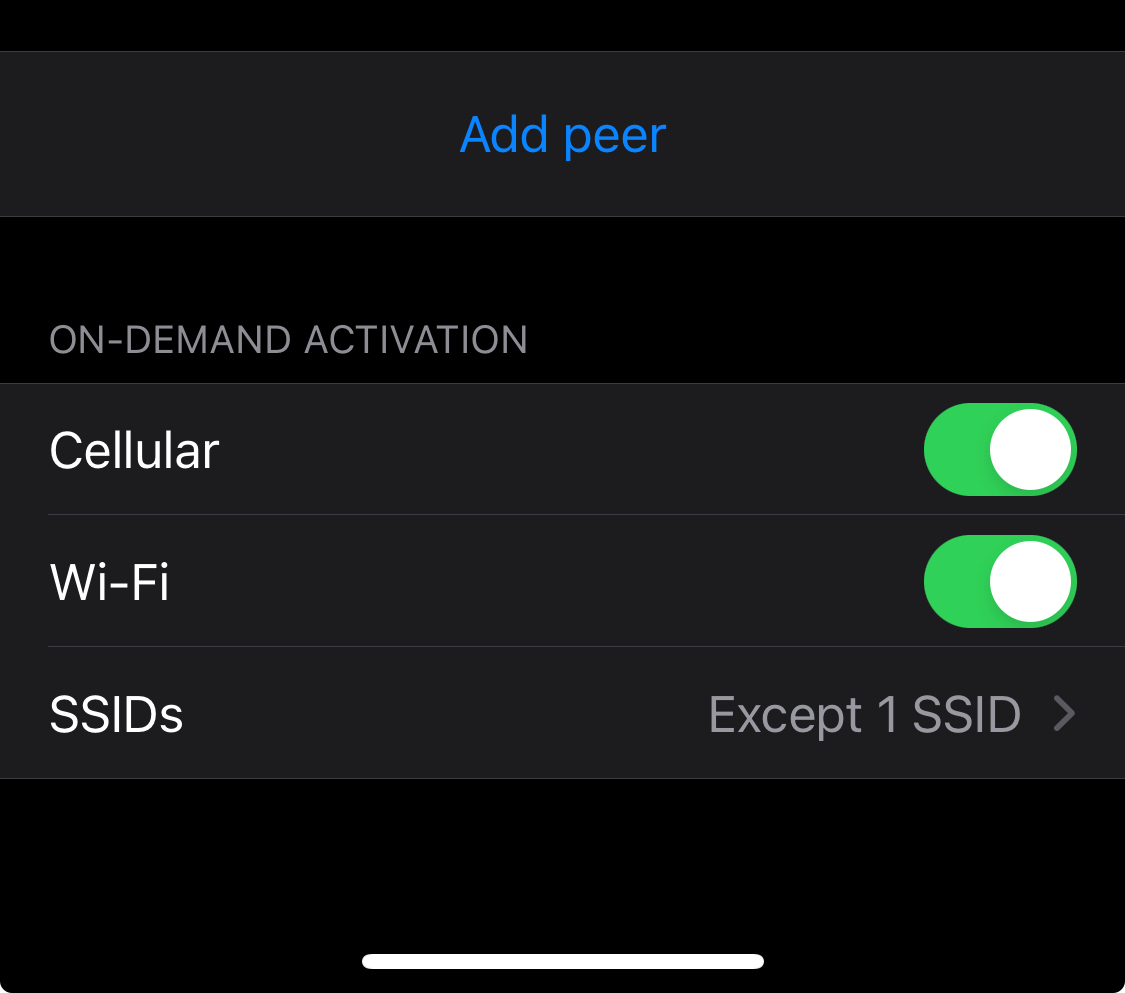

Is there a reason you need a dual book instance instead of a VM or even WINE?
Unless you need direct access to hardware and if you have enough RAM, you can probably avoid dual booting altogether.


Is there a reason you need a dual book instance instead of a VM or even WINE?
Unless you need direct access to hardware and if you have enough RAM, you can probably avoid dual booting altogether.


Pros:
Cons:


pfBlockerNG at the network edge and ublockorigin on devices.


Hard to tell from first glance but my guess would be this is fallout from the ongoing xz drama. Here: https://www.openwall.com/lists/oss-security/2024/03/29/4
I’m on iOS and do the same thing.
The WireGuard app has a setting to “connect on demand”. It’s in the individual connections/configurations.

You can then set either included or excluded SSIDs. There’s also an option to always connect when you’re on mobile/cellular data.
I imagine the Android app is similar.


DM’ed you the link.
Reason: personal GitHub account.


Reddit was aggressively rate limiting tools used to delete and edit content in a funny way when the API pricing was announced. The API wouldn’t return an error, the rate limiting was silent, and the tools would report successful deletion or edits even when the edit or deletion wasn’t made.
I had to modify an existing script to handle the 5-second rate limit and, lieu of deleting, I just rewrote each comment with a farewell.
Even then I did 3 passes (minor additional edits) in cases Reddit was saving previous edits.
My content has stayed edited.


Neat, I’ll have to look it up. Thanks for sharing!


Nextcloud isn’t exposed, only a WireGuard connection allows for remote access to Nextcloud on my network.
The whole family has WireGuard on their laptops and phones.
They love it, because using WireGuard also means they get a by-default ad-free/tracker-free browsing experience.
Yes, this means I can’t share files securely with outsiders. It’s not a huge problem.


You’re conferring a level of agency where none exists.
It appears to “understand.” It appears to be “knowledgeable. “
But LLMs do neither of those things.
Take this note from an OpenAI dev:

It’s that these models have leveraged so much data they’ve been able to map out relationships between words (or images) in way as to be able to generate what seem like new versions of those things.
I grant you that an LLM has more base level knowledge than any one human, but again this is thanks to terrifyingly large dataset and a design that means it can access this data reasonably reliably.
But it is still a prediction model. It just has more context, better design and (most importantly) data to make predictions at a level never before seen.
If you’ve ever had a chance to play with a model at level where you can control some of its basic parameters it offers a glimpse into just how much of a prediction machine it can be.
My favourite game for a while was to give midjourney a wildly vague prompt but crank the chaos up to 100 (literally the chaos flag at the highest level) to see what kind of wild connections exist but are being filtered out during “normal” use.
The same with the GPT-3.5 API in the “early days” - you could return multiple versions of the response and see the sausage being made to a very small degree.
It doesn’t take away from the sense of magic using these tools. It just helps frame what’s going on under the hood.


Discomfort can be a good thing; change is often uncomfortable.
But that’s a far cry from being tortured and it sounds like that’s what Musk does to the people around him; using platitudes and words of wisdom as weapons of control and coercion.


They do indeed: https://httptoolkit.com/blog/apple-private-access-tokens-attestation/
From the article:
The focus here is primarily on removing captchas, and as such it’s been integrated into Cloudflare (discussed here) and Fastly (here) as a mechanism for recognizing ‘real’ clients without needing other captcha mechanisms.
Fundamentally though, it’s exactly the same concept: a way that web servers can demand your device prove it is a sufficiently ‘legitimate’ device before browsing the web.


Snaps I get, but Ubuntu? Aside from an asinine application process to get hired a Canonical, they did a lot to push for a more straightforward Linux desktop experience. Their time has passed, but cancer is a bit too much for me, considering all the fantastic offshoots.
Context: I came to Ubuntu from Gentoo. Debian before that and a brief flirt with the hot fantastic mess that was Mandrake when I first discovered Linux.
Found the other NixOS user. ;)